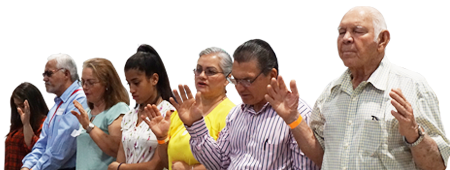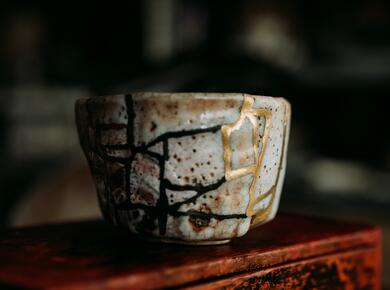Posted: July 28, 2022
The power of resilience
A Peace Sunday 2022 testimony
“The vessel he was making of clay was spoiled in the potter’s hand, and he reworked it into another vessel, as seemed good to him” (Jeremiah 18:4).
This theme has been discussed a lot recently, especially since the pandemic, while some of us may be struggling with health concerns, loss of hope, and so on. What exactly is resilience?
During my training with Mindanao Peacebuilding Institute in 2018, I met a Palestinian Christian woman who shared about her life within a war zone. My biggest question is how can they have such a resilient, strong character, endurance, in the midst of their chaotic, and horrific place to live? How has she and her family managed to live her entire existence in the middle of persecution, hostility and even bomb explosions? She revealed that one of her closest friends was killed in a bombing. I’m not sure how she manages to survive in such a setting.
Resilience is defined as the ability to bounce back from adversity, adapt, move on and, in certain cases, even flourish, writes Eilene Zimmerman. Genetics, personal history, environment and situational context all play a role in an individual’s resilience.1
I believe that resilience may be built in individuals and societies via crisis, challenges, calamities, tragedies, hardships and sufferings where they can make peace with the situation and adjust to uncertainty. This is the strength of internal resilience.
Viktor E. Frankl, in his legendary book about his time in a concentration camp, says, “one could make a victory of those experiences, turning life into an inner triumph, or one could ignore the challenge and simply vegetate, as did a majority of the prisoners.”2 This is a powerful thought borne out by real experience about the ability to achieve resilience amid adversity.
During my Psychosocial and trauma healing class at Anabaptist Mennonite Biblical Seminary (AMBS), I learned about the art of kintsugi. Kintsugi is a wonderful skill of restoring shattered objects by lacquering the cracks and meticulously dusting them with gold powder. The golden flaws, according to the Japanese tradition, make the pieces even more precious. It’s lovely to think of this technique as a metaphor for our life, to imagine our damaged, challenging, broken or painful aspects radiating light, gold and beauty.
Kintsugi teaches us that broken parts of our bodies make us stronger and better than we were before. When we think we’re broken, we can pick up the pieces, put them back together, and learn to appreciate the cracks.3
In the Old Testament, God the Jehovah – also known as the potter’s hand – makes Israel into a new vessel (Jeremiah 18:4). I like the word “reworked” here. I believe this is a process of becoming a new creation, a new person, that only God and us can make happen.
It is a journey of our encounter with God and, at the same time, our practice of self-awareness, self-discovery, self-healing or self-transformation to be a new vessel in the hand of the Creator for God’s purpose and glory.
This Peace Sunday, as we remember many hardships, wounds, traumas, challenges, suffering or pain in whatever season we are in, with God’s help and loving hands, we can be reworked as a new person and a new community of God.
Are we willing to embrace our brokenness, vulnerability, and scars to be transformed into a more resilient community of God so that we might empower those around us?
This is the power of resilience: working with God to co-create a newness in ourselves; to be more prolific, alive; to be a new human being; and to be a new people of God in this changing world. Let’s make peace with our broken pieces!
—Andi O. Santoso is a member of the Mission Commission. He is an ordained minister in the GKMI Mennonite church in Indonesia, currently studying at AMBS.
- Eilene Zimmerman, “What Makes Some People More Resilient Than Others”, New York Times (https://www.nytimes.com/2020/06/18/health/resilience-relationships-traum...)
- Viktor Emil Frankl, Man’s Search for Meaning: An Introduction to Logotherapy (New York: Pocket Books, 1959, 1963), 115.
- Candice Kumai, “Honor your imperfections with the Japanese art of ‘Kintsugi’,” Shine (https://advice.theshineapp.com/articles/honor-your-imperfections-with-th...)




Join the Conversation on Social Media
FacebookTwitterInstagramFlickrYouTube